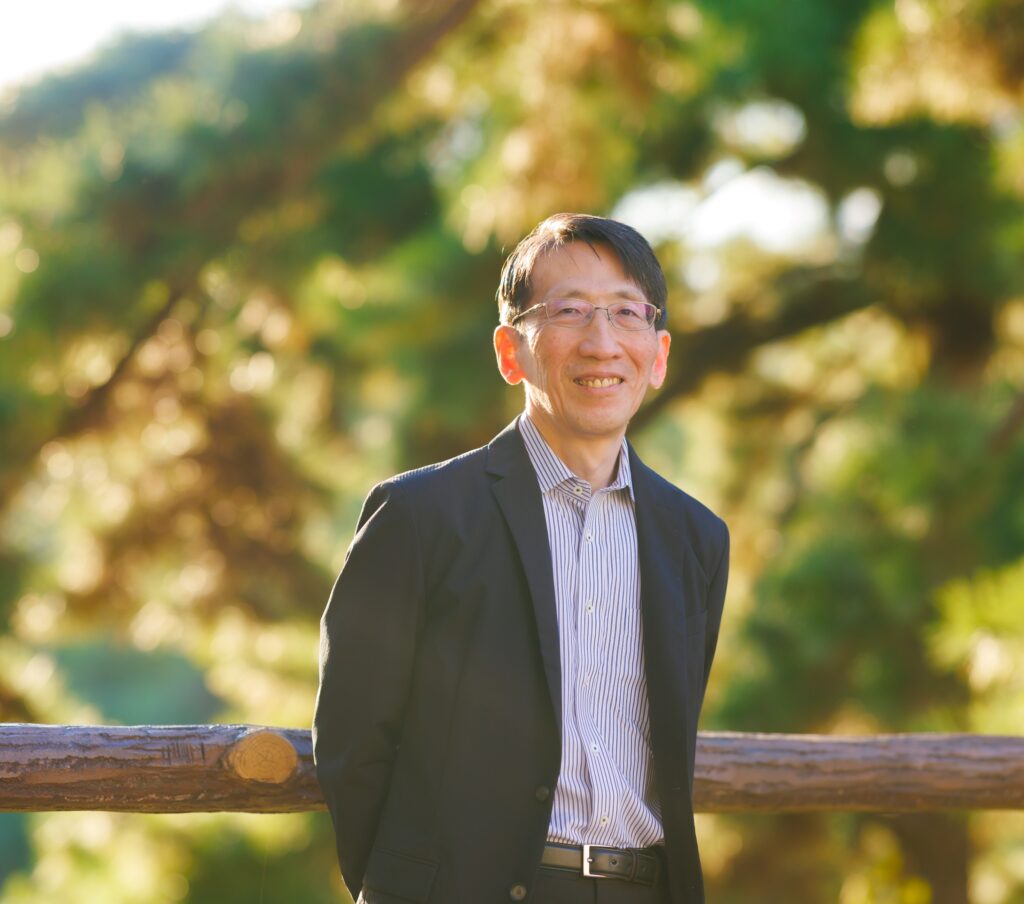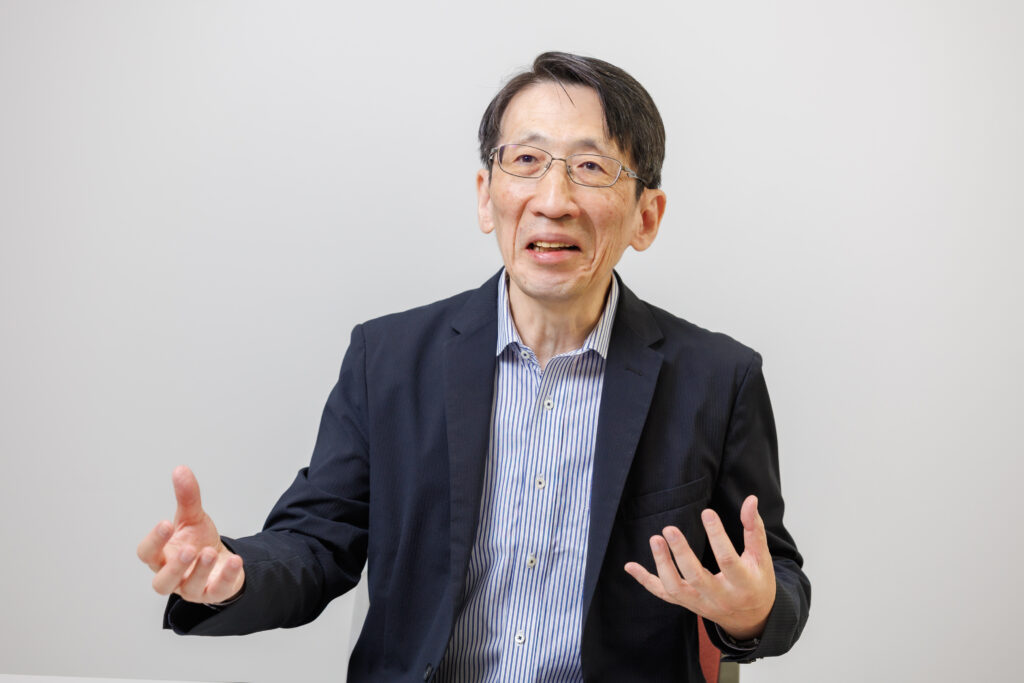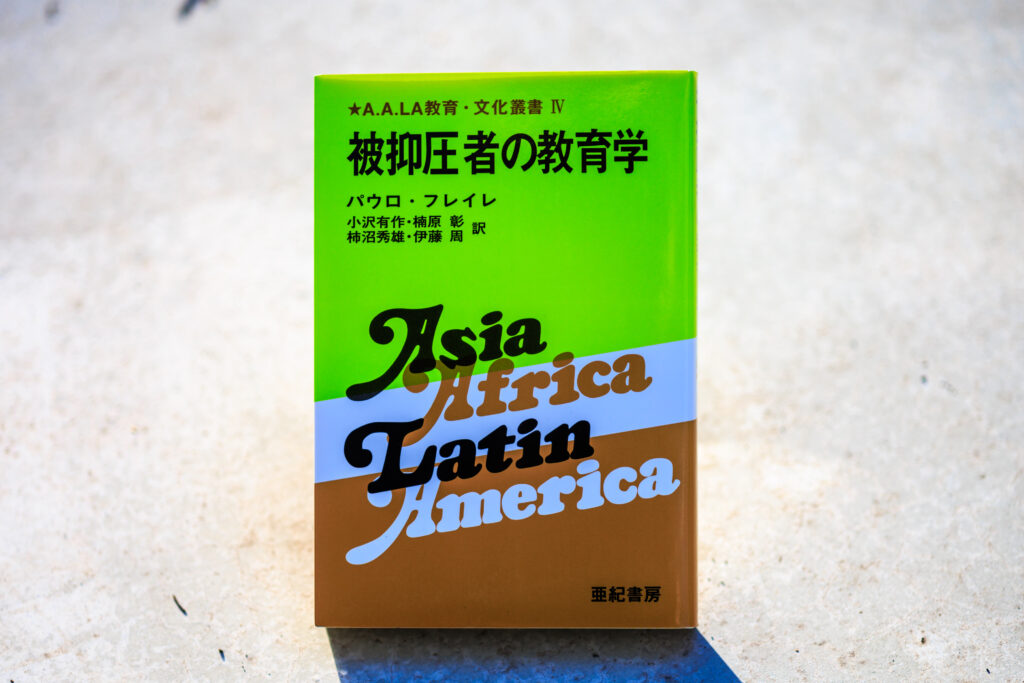
Slums represent poverty and are usually deemed as places to be eliminated, but Professor Masatsugu Shimokawa from the Faculty of Global Studies sees them as places for the poor to take a first step toward progression. A Catholic priest, he talks about his thoughts on support for the poor.
I undertake research about the poor in cities, mainly in Asia, with a special interest in the economic progression of slums. This is a field of research called development economics. However, there is something about the word “development” that bothers me.
Calling it development economics has a tendency for the subject matter to be developed countries working to change developing countries into better places, which is a condescending view. However, the actual subject matter is the poor in developing countries. If we call it the study of economic progression, then the subject matter shifts to the poor. I feel that it is such a shift in perspective that is important to this research.
People living in slums are the agents for taking action, not the subject of care

Slums that exist across Asia may seem like places with problems when seen from the perspective of developed countries. However, to the poor, they are places for resolving problems. When people come to cities from farming villages with nothing on their backs, their lives are supported by the communities in slums.
Amartya Sen, who received the Nobel Prize in Economic Sciences, said that people living in slums are the agents for taking action, not the subject of care. I fully agree with his words. As outsiders, our role is not to lay the rails but to remove the obstacles that prevent these people from taking their desired actions.
Still, I started as someone who thought that it was necessary to save the poor. Once, Father Anzorena, a former assistant professor at Sophia University, asked me “Why do you keep looking for darkness in the slums?” His words opened my eyes. My attention was drawn to the misery of the slums, and I failed to register the good aspects. My supervising professor in economics also pointed out that there has to be an economic rationale for people to gather in slums. These served to change my perspective.
Things that can be done to remove obstacles preventing the poor from becoming independent
Changing perspectives, you see that the economic activities of the poor are extremely creative. They span a wide range, including selling on the streets, operating street stalls, sewing, pulling rickshaws, and collecting waste. I think carrying out such economic activities on their own initiative leads them out of poverty. However, there are three obstacles.
The first obstacle is the issue of secure land. Their desire to develop business is thwarted because they do not know when their stalls or homes will be forcibly removed. The second obstacle is the lack of credit access. Capital is needed for business, but banks do not lend money to people living in slums. Thirdly, there is the issue of market access. If they manage to obtain capital and start a business, they are blocked by existing players from entering the market. Even if they do enter the market, they are forced to accept low prices.
How do we remove these obstacles? What kind of communities should we create? These are the questions that I work on in my research.
Currently, I conduct fieldwork by visiting slums mainly in Thailand and Pakistan but also in countries such as Cambodia, India, the Philippines and Myanmar. In the process, if I encounter creative ideas, I introduce them to slums in other countries.
People living in slums may not like condescending ideas for reform, but they show a positive reaction to the success stories of other slums, and obvious changes can be seen during subsequent visits. It is at such times that I again feel that the problem is not poverty, but the taking away of their freedom.
The book I recommend
“Pedagogia do Oprimido”(Pedagogy of the Oppressed)
by Paulo Freire, Japanese translation by Yusaku Ozawa, Akira Kusuhara, Hideo Kakinuma, and Shu Ito, Akishobo

The author was a Brazilian educator who conducted literacy education for the poor. He advocated that true education is aimed at making the poor realize the reasons for their poverty, taking action based on awareness, and changing society. This book completely changed my view on education.
-
Masatsugu Shimokawa
- Professor
Department of Global Studies
Faculty of Global Studies
- Professor
-
Received his Master of Engineering degree from the School of Engineering, The University of Tokyo in 1985 before working at the Ministry of Labour. Joined the Society of Jesus in 1989. Completed the master’s program of the Graduate School of Economics at Yokohama National University in 1996 and received his Ph.D. after completing the doctoral program of the university’s Graduate School of International Development Studies in 1999. Became a priest of the Catholic Church in 2001, and took on the position of associate professor at the Department of International Relations, Faculty of Foreign Studies, Sophia University in 2001 before assuming his current position.
- Department of Global Studies
Interviewed: October 2023